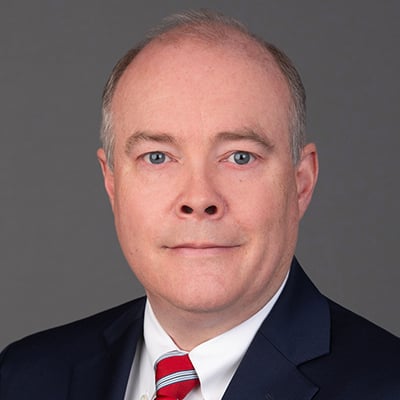Supreme Court Dives into Patent Exhaustion with Printer Cartridges
The U.S. Supreme Court appears to be at cross-purposes again with the Federal Circuit on patent law.
The high court took up its fourth patent case of the term Friday, agreeing to decide whether the first sale of a product exhausts the patent owner’s rights in it.
Impression Products v. Lexmark International is fundamentally about whether Lexmark International Inc. can use patent law to block the recycling and reselling of used Lexmark printer cartridges. But the technology industry is interested for another reason. It's looking for assurance that manufacturers of electronics components sold and then assembled abroad can't assert their patents when the finished product is sold in the United States.
"When buying components, amici must be sure that they are securing freedom to operate for both themselves and their customers," Intel Corp. and Vizio Inc. stated in an amicus brief supporting certiorari filed by Orrick, Herrington & Sutcliffe partner Mark Davies.
The en banc U.S. Court of Appeals for the Federal Circuit ruled earlier this year in Lexmark International v. Impression Products that patent owners may control subsequent uses through "a single-use/no-resale restriction that is lawful and clearly communicated to the purchaser."
That goes both for products sold first in the United States or abroad, Judge Richard Taranto held for the court in a 99-page opinion. His decision reaffirmed the Federal Circuit's 1992 holding in Mallinckrodt v. Medipart on domestic patent exhaustion and its 2001 international counterpart, Jazz Photo v. International Trade Commission.
The Supreme Court seemed to cast doubt on those precedents eight years ago with its Quanta Computer decision on patent exhaustion.
"We exceed our role as a subordinate court by declining to follow the explicit domestic exhaustion rule announced by the Supreme Court," Federal Circuit Judge Timothy Dyk wrote in dissent from the en banc decision.
The Supreme Court also applied the first-sale doctrine overseas in a copyright case in 2013.
"Once again the Supreme Court has granted cert in a case where the Federal Circuit drew a distinction between patent and copyright law," said Kirkland & Ellis partner John O'Quinn, referring to the laches case currently pending before the court. "The Supreme Court's decision to review the case shows that at least some on the court believe, as a presumptive matter, that where they address similar issues patent and copyright law should be interpreted to reach the same result," said O'Quinn, who's not involved in Lexmark.
Impression Products involves ink cartridges that Lexmark International Inc. sells on the condition they be used only once. Impression Products Inc. collects used cartridges, refills them with toner, switches out microchips that prevent them from being reused, and resells the cartridges. Impression moved to dismiss Lexmark's suit, saying that once Lexmark sold its cartridges, it no longer enjoyed patent protection over the product.
U.S. District Judge Michael Barrett of Ohio ruled that the Supreme Court had implicitly overruled Mallinckrodt in Quanta Computer, but that Jazz Photo remained good law. The upshot was that Lexmark could sue only over the cartridges that were first sold in foreign markets.
At the Federal Circuit, tech companies including Google Inc., Quanta Computer Inc. and Texas Instruments Inc. urged the court to loosen reuse restrictions for overseas sales as well. International exhaustion is "critical to the modern economy" because supply chains for products like smartphones can include hundreds of suppliers and sub-manufacturers based all over the world, Google and others argued.
Medical-device manufacturers opposed on the ground that many of their products are designed for single use for reasons of patient safety. The Mallinckrodt line of cases is "an important tool to protect public safety and health, and also enforce their patent rights against third-party reprocessors," they argued.
Chip designers Qualcomm Technologies Inc. and InterDigital Inc. also cautioned against overruling the court's exhaustion case law.
The Supreme Court had asked for the views of the solicitor general, which in October urged the court to grant cert on both the domestic and foreign first-sale issues.
Mayer Brown partner Andrew Pincus is principal counsel for Impression. Sidley Austin partner Constantine Trela Jr. represents Lexmark.
REPRINTED WITH PERMISSION FROM THE DECEMBER 5, 2016 EDITION OF THE AMERICAN LAWYER © 2016 ALM MEDIA INC. ALL RIGHTS RESERVED. FURTHER DUPLICATION WITHOUT PERMISSION IS PROHIBITED

